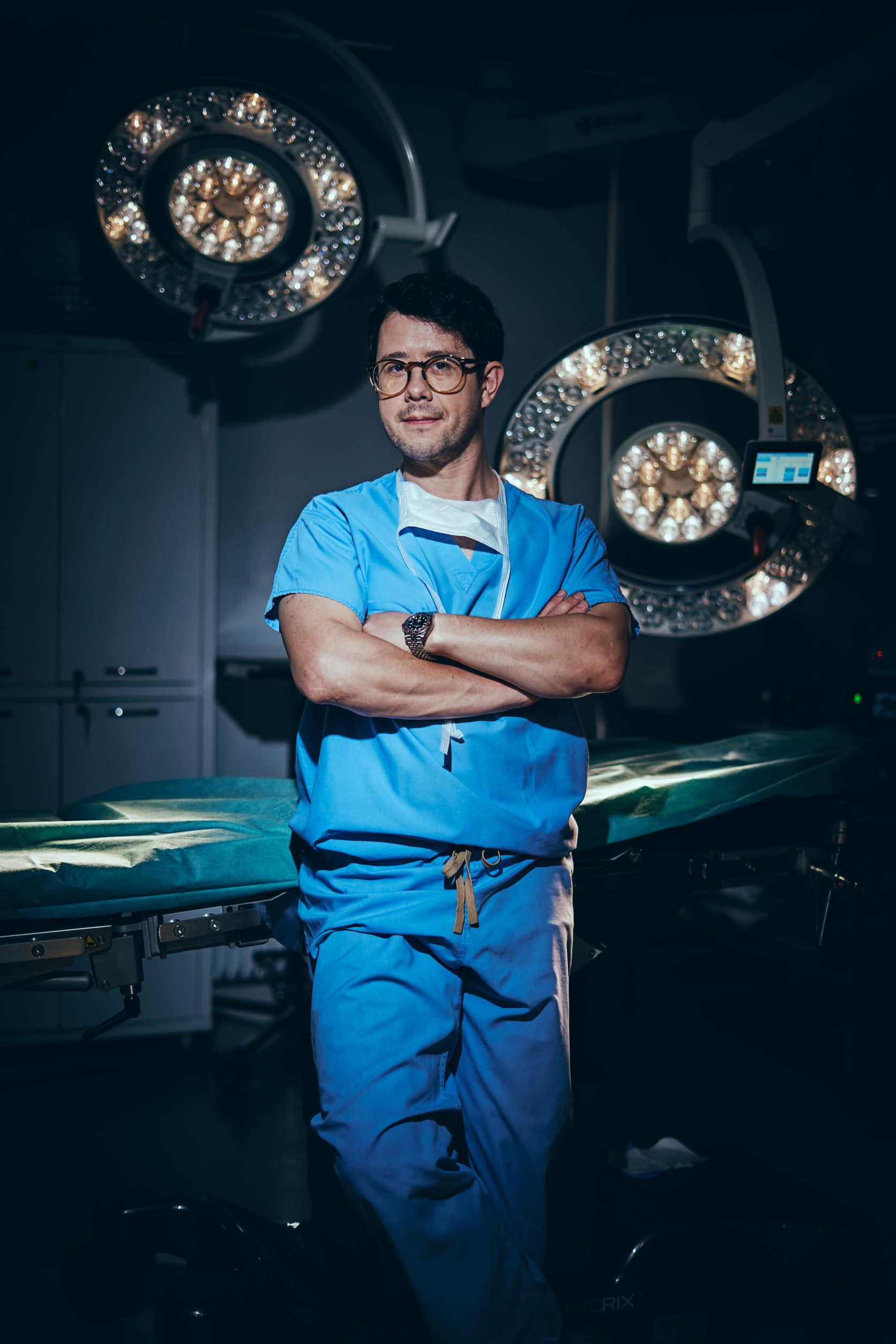
Highly esteemed plastic and reconstructive surgeon Dr. Dmitry Melnikov, who is celebrated for his rich body of work in Russia, has now made Dubai his second home. Having served as the Russian National Vice Secretary for the International Society of Aesthetic Plastic Surgeons (ISAPS), Dr. Dmitry is an active member of the World Society of Reconstructive Microsurgery. He gained notable recognition for his surgical expertise when he successfully removed synthol oil and necrotic muscle tissue from the biceps of a Russian bodybuilder famously known as Popeye. In an exclusive interview with L’Officiel Arabia, Dr. Dmitry talks about the subtle yet definite shifts in the beauty industry, and the changing face of beauty.
Delna Mistry Anand: How has celebrity culture impacted people's perceptions of beauty and their decisions to undergo plastic surgery?
Dr. Dmitry Melnikov: Popular celebrity culture has significantly influenced beauty standards, often promoting unrealistic and extreme ideals. Many doctors contribute to this by showcasing dramatic results immediately after surgery, without educating individuals on long-term outcomes. This leads to misconceptions about what is achievable and normal. Most people are not always aware that implants have a finite lifespan and that scars are a permanent part of any surgical procedure. This lack of transparency can skew expectations and decision-making processes.
Having been in the business for years, what shifts have you noticed in the demographic of people seeking plastic surgery (e.g. younger patients, men)?
There has been a noticeable shift in recent years. Younger patients are increasingly requesting procedures like forehead lifts and the so-called "Bella Hadid eyes" or "fox eyes." However, when it comes to other popular procedures, the demographic remains consistent, primarily women aged 25-40 who have given birth and wish to restore their pre-pregnancy body.
When it comes to men seeking plastic surgery, the most common reasons include skin reduction after significant weight loss. The trend of men opting for artificial six packs has declined, as these often appear unnatural and less desirable.

“My patients in the UAE are very sophisticated and prefer natural, subtle results. They value understated elegance and seek procedures that enhance their natural beauty without making them look artificial.”
With the ever-changing beauty standards, what do you see as the most influential trend in the current demand for plastic surgery, especially in this region?
In the past, it was assumed that Middle Eastern women were actively seeking extreme procedures like Brazilian Butt Lifts (BBL) and ultra-thin waists. And when I first arrived in the UAE, I was told that local women preferred more dramatic enhancements. But my experience has been quite the opposite. My patients in the UAE are very sophisticated and prefer natural, subtle results. They value understated elegance and seek procedures that enhance their natural beauty without making them look artificial. And most of their intentions are to restore their natural beauty, after significant life events like childbirth and breastfeeding. The focus has shifted towards enhancing one's natural features and achieving a balanced, refined look rather than drastic alterations.
How do you approach consultations with patients who are influenced by certain beauty ideals to ensure their expectations are realistic and safe?
I lay great emphasis on balancing patients' desires while maintaining their unique features and a natural look. I always start by understanding their motivations and expectations. It’s crucial to educate patients about the importance of enhancing their natural beauty rather than completely altering their appearance.
In consultations, it's crucial to address any unrealistic expectations head-on. If a patient requests something that could lead to an unnatural or unsafe outcome, I believe it's better to decline the procedure. For all patients, I ensure an honest discussion about what to expect, including possible complications. I emphasize that no implant lasts forever and that additional surgeries might be necessary in the future. This transparency helps in setting realistic expectations and ensures that patients are fully aware of the implications of their choices.
Since no imaging technology can predict a 100% outcome, I encourage patients to create a mood board of their desired looks. We then carefully review it together, discussing what is feasible and what might not be achievable in their specific situation. This approach ensures that their expectations are realistic and aligned with maintaining their unique features.

“It is important to understand the limitations of surgery and aim for improvements rather than perfection.”
What steps can patients take to ensure they are making informed and safe choices when considering plastic surgery?
Patients can take several steps to ensure informed and safe choices.
· Research thoroughly: Investigate potential surgeons' qualifications, board certifications, and experience.
· Consult multiple surgeons: Get opinions from several qualified surgeons to compare approaches and feel comfortable with the chosen one.
· Check facility accreditation: Ensure the surgery will be performed in an accredited facility with proper emergency protocols.
· Understand the procedure: Educate themselves about the procedure, risks, benefits, and recovery process.
· Ask questions: Don't hesitate to ask detailed questions about the surgeon's experience, complication rates, and patient testimonials.
· Avoid unrealistic expectations: Understand the limitations of surgery and aim for improvements rather than perfection.
· Consider the long-term: Be aware of the long-term maintenance required, such as the potential need for future surgeries or adjustments.
· Prioritize health and safety over cost: Avoid choosing surgeons based solely on lower costs, as this can compromise safety and results.
· Trust word of mouth: Speak to existing patients and examine the surgeon’s previous work and results.
related posts



.jpg)






